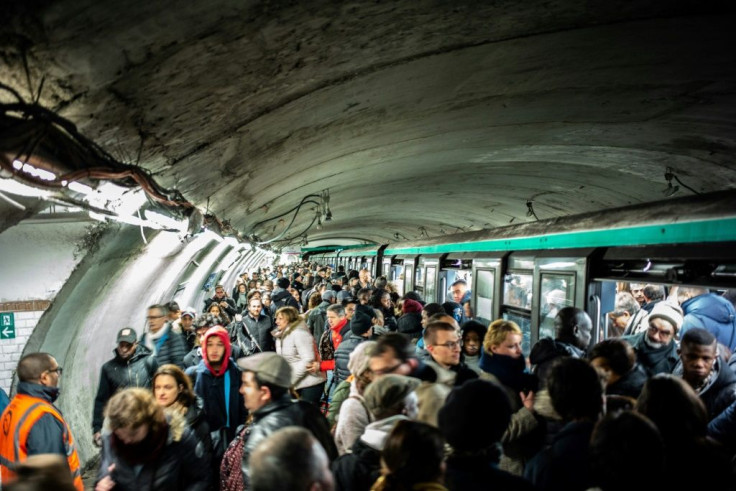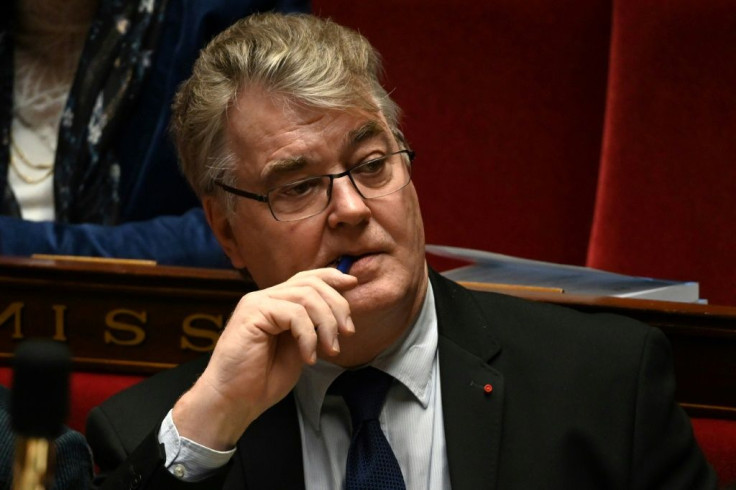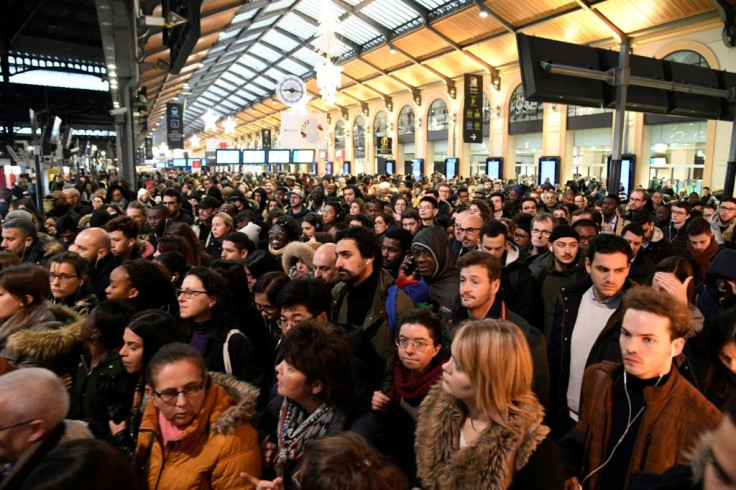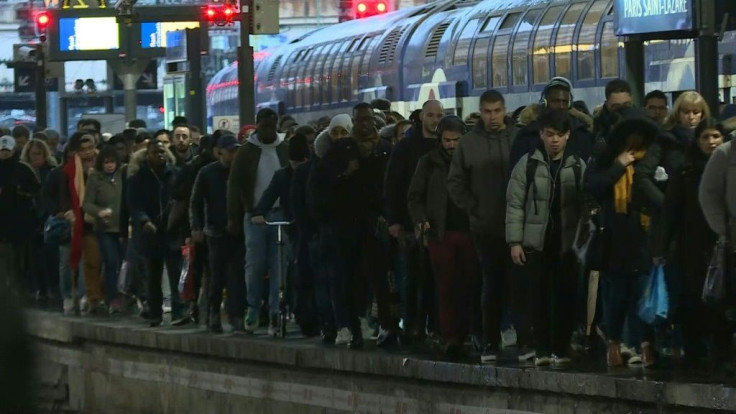France's Pensions Chief Resigns As Strike Frustrates Commuters, Threatens Holidays

The French official leading a pension reform drive that has unleashed a crippling public transport strike resigned over undeclared payments on Monday as citizens endured a 12th day of commuter misery with their holiday plans hanging in the balance.
Jean-Paul Delevoye became the target of unions' ire after admitting he had failed to disclose 13 private sector posts, paid and unpaid, in a recent asset declaration.
One of his jobs, as president of an education think-tank, paid nearly 5,400 euros ($6,000) a month on top of his government salary -- money he should have forfeited under a 2013 political transparency law.
An official in the French presidency said Emmanuel Macron will name a new pension reform commissioner "as soon as possible".
Government spokeswoman Sibeth Ndiaye later stressed that the pension reform won't go away with Delevoye, "it will still be defended" by the executive and will not be withdrawn.
Delevoye has said he will pay back the money, totalling more than 120,000 euros since September 2017.
But Laurent Berger, head of France's largest union, the moderate CFDT, told France Info radio Delevoye's omissions "obviously damage his credibility".
Unions are demanding that Macron drop his plan to forge a single pension system out of 42 existing schemes -- claiming that millions would have to delay their retirement.

Macron has expressed "solidarity" with the millions affected by the strike but has shown no sign of backing down on what he has called "a historic reform".
The strike will continue Tuesday, with fresh demonstrations planned. Hundreds of thousands of workers already turned out for two nationwide pickets since the action began on December 5.

Several universities, including the Sorbonne in Paris, said Monday they had cancelled or postponed year-end exams because students would not be able to show up.
A day of road blockades by truckers demanding higher pay added to traffic jams Monday, which reached nearly 630 kilometres (390 miles) in Paris and its suburbs during the morning rush hour -- nearly double the average.
Most metro lines in the capital were again closed or operating a minimum service, and across France only one in three high-speed TGV trains and one in four regional trains were running.
Prime Minister Edouard Philippe invited unions and employer's bodies to separate "working meetings" on Wednesday afternoon to discuss the proposed reform, followed by a joint meeting on Thursday.

He also offered to meet Thursday with bosses of the SCNF and RATP public transport agencies, whose workers are striking over a proposal to take away their special early retirement dispensation.
French officials have said they are willing to negotiate, particularly on a proposed "pivot age" of 64, which would grant rights to a full pension later than the official retirement age of 62.
He and other union leaders have vowed to maintain the transport strike until the government backs down, a standoff threatening holiday travel plans for many.
Rail operator SNCF has already warned that unless the strike ends in a few days, it will not have time to get service back to normal by December 25.
Polling agency Ifop, in a survey published by Le Figaro newspaper, found that 55 percent of respondents would find the continuation of the strike over the Christmas holidays "unacceptable".
Rail operator SNCF is due to announce on Tuesday which trains, for which tickets have already been booked, it would be able to guarantee over the holiday period.
With air traffic controllers joining Tuesday's strike, the DGAC civil aviation authority asked airlines to cut by a fifth their programmed flights Tuesday to and from Orly airport outside Paris -- the second biggest in France.
Air France subsequently announced it expected to operate all planned long-haul flights, and almost 80 percent of domestic flights to and from Orly.
"Last-minute delays and cancelations cannot be excluded," said the airline's website.
International trains were also expected to be affected.
France's central bank said Monday it did not expect the ongoing labour unrest to affect economic growth projections for 2019.
But retailers, hotel owners and restauranteurs worried for their bottom line in the runup to Christmas -- when most businesses expect to be at their busiest.
Sectoral bodies said turnover dropped between 25 and 60 percent from a year earlier.
The head of France's employer federation Medef said "it is time to put an end to the blockages".
Many business leaders are facing "directly or indirectly heavy losses", which will have an impact "in the end on French growth," Geoffroy Roux said in an open letter to members.
© Copyright AFP {{Year}}. All rights reserved.





















